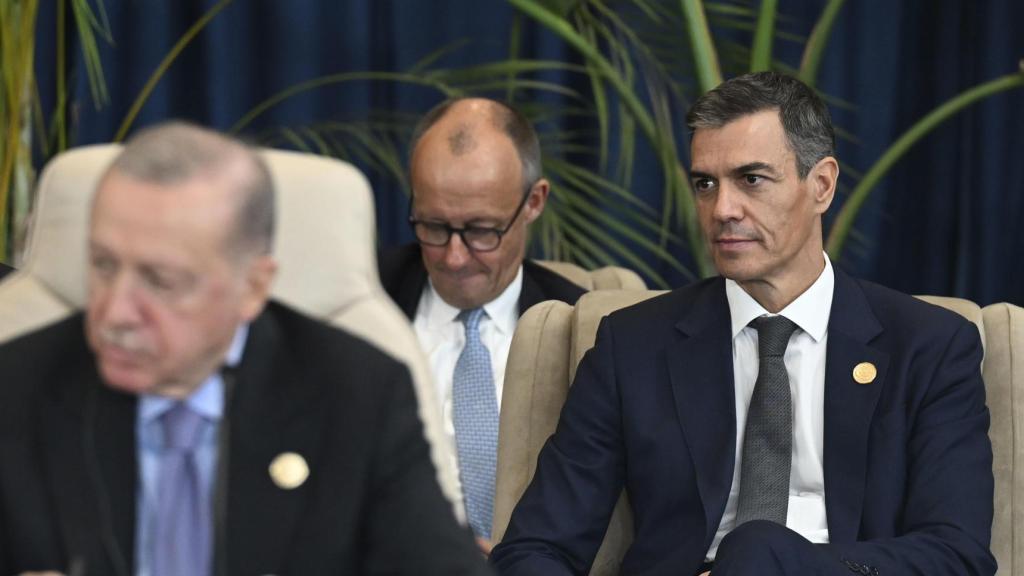Spain’s strategic sovereignty requires a profound reorganization of our logistics chains.
The recent global geopolitical instability, combined with the United States’ quest for technological independence and the embargo imposed by the current government on Israel, underscores the urgent need to diversify our sources of supply and invest in the European defense market.
In this context, only European products offer a stable framework for Spain.
The European partners not only share a common cultural, legal and political framework that guarantees the continuity of commercial and defense relations, but they are also States of similar or smaller size to ours with which we can interact on equal terms.
On the other hand, the volatility of countries like Israel or Türkiye (with the latter we have recently signed several purchases of very dubious viability) jeopardizes any purchasing plan signed with your companies.
For now, the damage to the Army in purchases with Israel is enormous, especially if the SILAM rocket launcher program (the Spanish-Israeli HIMARS, which has already cost hundreds of millions to public coffers) is abandoned.
NATO Secretary General Mark Rutte talks with Minister Margarita Robles.
Likewise, we will have to look for an alternative to the Spike anti-tank missile, since there is no product that can really compare with the latter.
In addition, all simulation systems will have to be discarded and new ones purchased, in addition to remodeling the fleet of armored vehicles that carry the Spike.
In short, a lot of money will be lost and Spain will be left with a very weakened anti-tank defense and totally obsolete artillery against Morocco and Algeria for the next five years.
Since the beginning of the 20th century, Israel has experienced two intifadas, a regional conflict with Iran, two invasions of Lebanon, more than three ground interventions in Gaza and several defensive campaigns against its enemies’ rocket fire.
All this has led the Jewish State to extreme situations that put international law to the test.
Likewise, other unstable partners of Spain, such as Turkey, have advocated collaboration with Russia, have launched extensive aerial bombardments against the Kurds in Iraq, Syria and Turkey itself, have favored the Azeri ethnic cleansing of Nagorno-Karabakh and have even allowed themselves the conquest of several parts of Syria, eradicating Arabic and Kurdish in favor of Turkish.
That is to say, Providers operating in such extreme contexts sooner or later incur legal problems and political costs..

The main objective of our Armed Forces was, is and will be a credible deterrent and its ability to deploy in our immediate environment and beyond.
However, deterrence is not achieved solely by the number of troops or the size of the budget, but by the real and demonstrable ability to inflict unacceptable damage on any potential adversary. In our case, Morocco and, to a lesser extent, Algeria.
The latter requires the acquisition of the right weapons at the right time.
The mythological FCAS, the Euromale Sisyphus or the turtles disguised as dragons do not meet these requirements.
“To ensure a strong deterrent capability, Spain must turn to European partners with proven experience in high-tech systems, timely deliveries and a track record of political stability”
The key to overcoming this impasse lies in a pragmatic balance: prioritizing proven European programs, complementing them with acquisitions of strong European partners and seeking specific solutions in select and reliable markets.
We cannot overestimate punctuality. Cost overruns and order delays are unfortunately common in the global defense industry. And therefore, it is essential to forge relationships with domestic industries that demonstrate on-time deliveries.
Our national defense cannot wait any longer.
To ensure a strong deterrence capability, Spain must turn to European partners with proven experience in high-tech systems, timely deliveries and a track record of political stability.
Germany, for example, is a key partner in the European axis. Their participation in programs such as Eurofighter and future ground systems is essential. But cooperation could extend to areas such as utility vehicles for the army, IRIS-T SLM medium-range anti-aircraft systems and modern Skyrange 35 anti-aircraft artillery..
Sweden is also a very attractive option. Its products combine advanced technology, timely supply, a stable foreign policy and a range of geopolitical interests that do not conflict with those of Spain.

Pedro Sánchez during the summit in Egypt after Erdogan.
Efe
However, our bilateral relations are somewhat neglected and therefore need decisive renewal.
Consider, for example, the Arexis countermeasures system, which launches flares, decoys and other devices to deflect missiles and is used by several European air forces.
Or, for example, the Global Eye radar and air command center, that would complement the excellent Spanish air defense (IADS).
In fact, thanks to the Air Surveillance Squadrons, Spain has one of the best radar networks in Europe: designed by Indra, strategically located on various peaks of the Iberian Peninsula and capable of detecting any object that flies, for example, in North Africa.
However, they are static radars and have blind zones and maintenance periods that could be covered with an “aerial radar” like the Global Eye.
Finally, the lessons of the war in Ukraine have demonstrated the importance of having cost-effective and low-complexity systems.
Combat-proven technology, especially that of Ukrainian origin, can offer specific solutions, particularly in the field of naval and aerial drones, where experience in high-intensity warfare environments is invaluable for tactical integration and information warfare.
Ukraine has developed an enviable industrial core with extensive experience.
But strategic cooperation will not emerge by itself. More decisive action is needed from the Ministry of Defense and the Ministry of Foreign Affairs to build trust with new defense equipment suppliers, as the Israeli embargo has cut the Army budget, losing hundreds of millions and generating a window of vulnerability with a failed anti-tank defense and obsolete artillery against our southern neighbors.
Controlled diversification and deep cooperation with European partners are the pillars of a new, balanced, safer and resource-saving purchasing policy.
*** Yago Rodríguez is a military and geopolitical analyst, and director of The Political Room.

